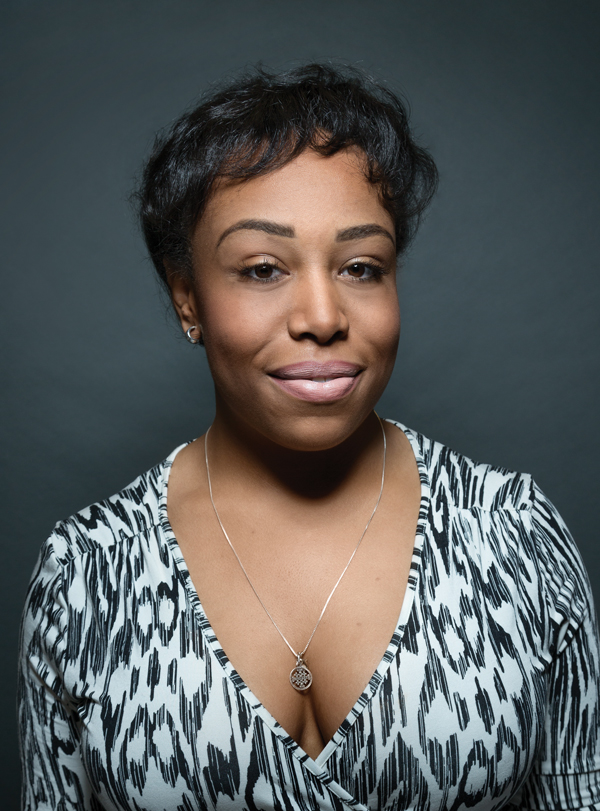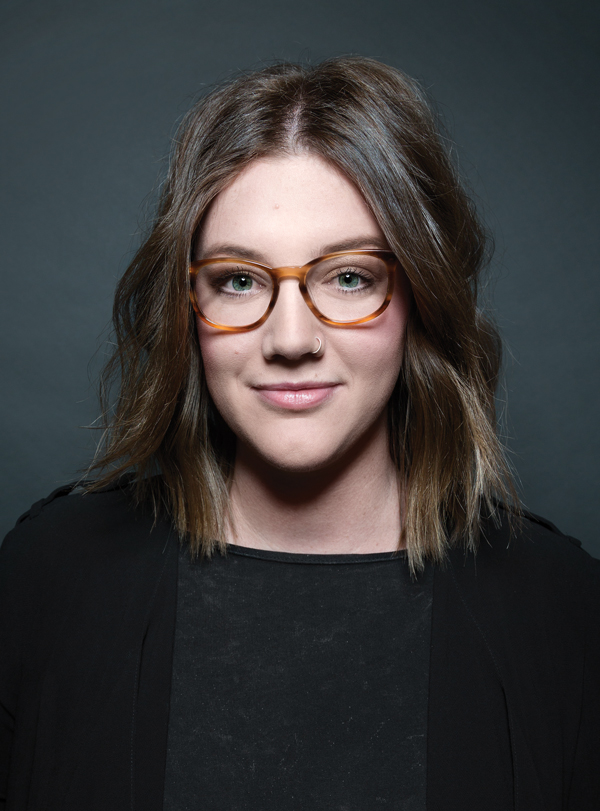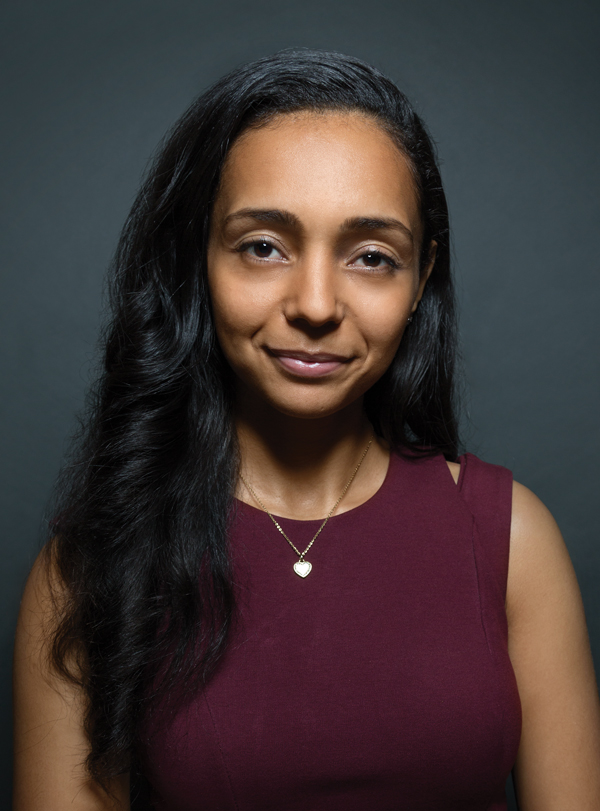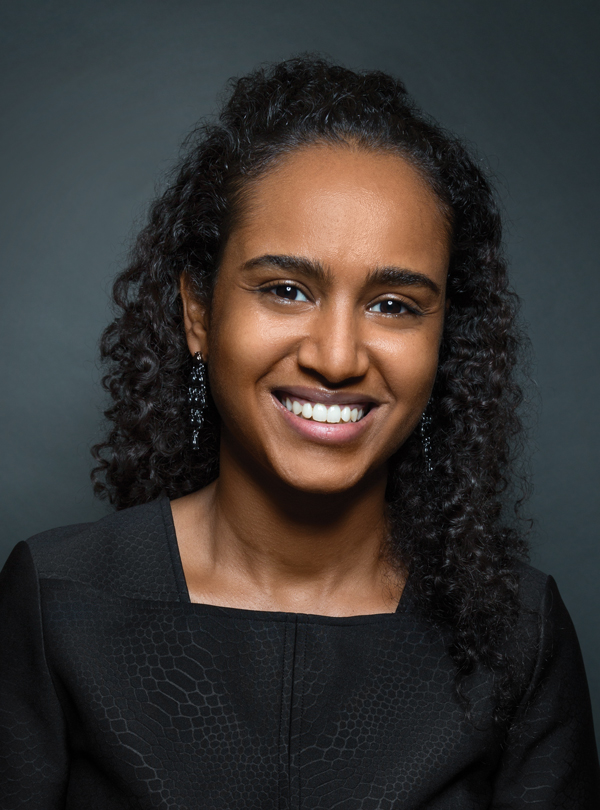Meet the group
 Gerald Carter
Gerald Carter
Age 29
Occupation Electrical engineer, Georgia Transmission Corporation
Education BS, Tuskegee University; MBA, University of Georgia
Hometown Atlanta
Current neighborhood Tucker
 Carolyn Smith
Carolyn Smith
Age 25
Occupation Public relations professional, Wilbert Group
Education BA, Howard University
Hometown Atlanta
Current neighborhood East Atlanta
 Sarah Spear
Sarah Spear
Age 29
Occupation Marketing director, Paces Properties
Education BA, University of Tennessee
Hometown Los Angeles
Current neighborhood Old Fourth Ward
 Larry Stokes
Larry Stokes
Age 33
Occupation Admission advisor, Georgia Institute of Technology
Education BS, MA, Georgia Institute of Technology
Hometown Atlanta
Current neighborhood Belvedere Park
 Anita Foster
Anita Foster
Age 24
Occupation Development specialist, The Center for Working Families
Education BA, Spelman College; MA, The Graduate Institute
Hometown Washington, D.C.
Current neighborhood Old Fourth Ward
 Susanna Spiccia
Susanna Spiccia
Age 29
Occupation Founder and director, Re:imagine/ATL
Education BA, Georgia College and State University
Hometown Alpharetta
Current neighborhood Cabbagetown
 Saba Long
Saba Long
Age 29
Occupation Communications consultant
Education BA, Georgia State University
Hometown Addis Ababa, Ethiopia
Current neighborhood Downtown
 Jacob Kaplan
Jacob Kaplan
Age 30
Occupation Real estate attorney, Weissman, Nowack, Curry & Wilco
Education BA, Clemson University; JD, Mercer University
Hometown Alpharetta
Current neighborhood Lindbergh area
On millennial stereotypes
Carolyn I don’t think the entitlement stereotype is true. I don’t think that relates to me or any of my girlfriends. We bust our ass to get to where we are.
Sarah I think there is some truth to the stereotype that we rely on technology so much that it detaches us from some forms of communication.
Jacob At some point, people should pick up the phone and call another person and have some actual human interaction.
Saba One thing that’s positive for our generation is that we’re collaborative. Particularly in the workplace, we really think about how what we do impacts everyone else.
Susanna Millennials want to find purpose in what they do, and they like giving back. I listen to my friends all the time complain, “I wish I had a job where I was doing something that mattered.” Then they come out and volunteer or give money.
On the biggest challenges facing Atlanta
Carolyn For me, having grown up in the city, it kind of breaks my heart when I see new development going up that doesn’t really fit with this city. A lot of my friends have family members who grew up in East Atlanta and are slowly being pushed out by some new multimillion-dollar house.
Jacob I agree, but at the same time there are so many developments that give new life to an area, like Krog Street Market or Ponce City Market, that are driving a new kind of lifestyle in Atlanta where people walk everywhere.
Saba I think millennials see Atlanta as a region where problems have to be solved in a collaborative manner—like transportation, education, work force development. It’s kind of hard to identify what’s Atlanta’s brand. Who are we as a city? Who are we as a region? I think you could go to a lot of other cities and figure that out pretty easily. Here, that’s something we struggle with.
Jacob I agree that everyone in the region needs to think of themselves as Atlanta, instead of a Balkanized
area where nobody’s speaking to each other. In my school we had the majority-to-minority program, where they would bus kids in from other parts of town. Some of my best friends were those kids, and that program opened us up and exposed us to new ideas. It’s an example of how we could have interaction between groups inside and outside the city.
On income inequality and gentrification
Larry I’m sort of in a weird position in that I live in the house where I was born. Looking at the way the neighborhood has changed over almost 35 years, my concerns are with who is being displaced. Gentrification is kind of value neutral, right? I’ve seen new populations move in and want to “fix up the neighborhood.” Well, what was wrong with it before?
Carolyn MJQ gets noise complaints from new neighbors. It’s crazy to me that you would move from the suburbs next to a nightclub because it was so hip and so trendy, and then you call the cops on the club. I see this new population coming into Atlanta, and I think the divide is going to deepen. The folks who can afford a $1,600 flat at Ponce City Market are doing great. But then there are the millennials who didn’t go to college or haven’t been able to get out of their neighborhood. They’re still trying to figure out what the heck they’re doing with their life. Their version of success and what’s going on in the city is very different from ours.
Susanna I work in Bankhead almost every day, and it’s frustrating because most of the homes in that area are boarded up. There are plenty of millennials over there. A lot of the teens we work with have never even left their neighborhood because they don’t have good access to transportation. They can’t get jobs because they’re stuck over there.
Anita I’m originally from D.C., and I came here for school. As an outsider, I see Atlanta has a pattern of developing an elite class who speak on behalf of the people who actually experience poverty and are trying to survive the changes in their community.
On career priorities
Susanna I have not made money in a year and 10 months since I started my nonprofit. I saved up money from a sales job to do this. My parents let me live in their home in Alpharetta for the past year, and now I’m staying with a friend. As a millennial, you want to be trendy and cool. But the reality is I can’t pay for valet parking because I’m doing what I love. Our city is very divided, but when you’re doing something positive, people get behind it here in a way that they might not in other places. The bottom line is both sides have something to learn from each other.
Carolyn I didn’t mean to get into corporate PR, but I’m working to figure out how to make your brand great so we can make you more money, which makes us money. I don’t look to my job to save the world. In my personal life, I’m mentoring. I’m going back to my schools. I help a girlfriend who works on the rape hotline.
Jacob I’m working at my dream job, helping people get into houses, a lot of whom have never owned a home before. It’s an emotional payoff because I take them from step one all the way to getting their keys. It’s one of the only areas of law where people are generally happy at the end of the process. I would say it’s not about the money at all.
Gerald To be honest, my job doesn’t provide much fulfillment, which is why I started my own nonprofit, Divine Authority Foundation, to help single moms and boys raised by single moms. Growing up in Adamsville, which doesn’t have a good reputation, I didn’t have a father around. I want go back to areas like that and help out because I came out of that environment, and it’s a completely different world. I’m going to start my own fiber broadband company to bring connectivity to those types of areas. That’s how I’m trying to find a purpose.
Sarah I don’t believe I can work for something I don’t believe in. If I’m just there for the check, you probably won’t get much out of me. I enjoy my job because my president and CEO ask for my opinion often. I think that’s a millennial thing, too.
On how they’re faring career-wise, compared with their parents
Sarah When I graduated college in 2008, the job market was horrible, so I didn’t feel the pressure to get a job right away. I taught English in Italy for two years, and I somehow found my way back to Atlanta. I think that when my parents graduated, there was that pressure to get a job. My dad probably would have loved to start his own business right out of college, but I’ve had the luxury of exploring and finding myself a little bit more than he did.
Larry My parents were probably doing better than I am at this point in my life, but that’s fine. As long as I can do something that I like and be able to support myself, that’s good.
Susanna It depends on how you define “better.” Holistically, I’d say I’m better off because I’m doing work that I’m passionate about.
Saba They were homeowners and had children and were stable financially, but my life is very different and I think more enriching.
Larry Both of my parents were government workers. My mom worked for the same school system and my dad the same employer for 30 years. No one expects to stick with the same place for 30 years anymore.
Jacob The times are just so different now. My mom was an immigrant and had to start a career, and my dad went straight to medical school. These days I feel there’s a longer transition phase between childhood and parenthood for us.
Saba I would say in five years having a family, being a little more advanced in my career—that’s my ultimate goal. Career is sort of secondary; my first priority has always been my family, making sure that their success is more important to me than if I’m a senior vice president, even though it would be lovely to have that check.
On millennials’ use of social media
Carolyn A lot of the stereotypes [about millennials] could be applied to anyone in their 20s. The only difference is we’re all on social media, so it gets played out on a public scale—not just our personal lives, but also public officials’ personal lives. We all saw Wiener’s wiener. How many public officials’ private parts have we seen over the years? Sorry if I made anybody uncomfortable . . .
Susanna Social media is one of the top things that distinguishes us as a generation because we are so connected to everything, because it gives us a voice. I’m gonna go home and look up all of you on Instagram.
Sarah Our parents’ generation didn’t talk about stuff. But I go to panel talks like this all the time and listen to people’s inner thoughts.
Jacob Previous generations would write a book or write to their congressman or write a letter to the newspaper. In the 1960s and 1970s, they went to protests. That’s how they got out their speech. Today we sit in front of a computer or type on our phone . . .
Carolyn Hashtag activism.
Jacob Exactly! There are positives and negatives about that. Real activism is getting out and doing something. I think if our parents’ generation had the tools that we have today, they would have done the same thing.
Sarah But if you’re someone who might not have written a letter or spoken out, technology now gives you a platform to hide behind. You can be anonymous on a forum where there are so many opinions that you feel like you have to contribute to the conversation.
On political correctness
Carolyn I hate political correctness. I don’t like when people try to sugarcoat their thoughts because it doesn’t help the conversation. You have a right to your opinion, but people also get to react if what you’re saying is offensive. You have to respect that reaction, just like they have to respect your opinion.
Larry There are certain well-known political figures on the stage right now who are constantly talking about how political correctness is a bad thing, when they just really want free rein to say whatever they want without any sort of consequence.
Jacob Without even mentioning Donald Trump, we have to be careful about trying to be so sensitive that we avoid any hint of offending someone. Sometimes offending someone is the best way to get a positive message through to them. Sometimes I’ve been offended about something, and I think about it later, and the person was right.
Susanna What we get sick of is people being politically correct because they don’t want to cause problems, but they don’t actually have empathy.
On religion and spirituality
Anita In my circle, we all go to church, and we are unapologetic about our faith. But there are some millennials who are more spiritual than religious.
Carolyn I grew up in the church, but I don’t make it to church on Sundays. I don’t have a lot of friends who go to church, and some of those who do are just going for show. Religion is just so weird to me.
Jacob I have a son, 16 months old, and if you don’t believe in God before watching a birth, you definitely will after that because it’s incredible. It changes you forever.
Susanna We want to be all things to all people. We want to get along. Personally, I know I’ve gone up and down in my faith journey, but I’ve found being more open about spirituality has also hampered me in the nonprofit scene and working in the arts.
Saba We’re probably one of the more well-read generations, and we’re taught to challenge authority, and religious institutions are obviously authoritative. My parents are deeply religious, but once I left the house, I took an extended break from the church. My spiritual religious path has gone through a number of iterations, like reading Rumi and Buddhism and all these things I was never exposed to at 15. I appreciate Christianity in a different light because I’ve had the chance to find my own way in a religious sense.
On the most important issues of the 2016 presidential race
Carolyn Race, women’s rights, and probably healthcare are my three biggest things—and not getting Donald Trump anywhere near the presidency because he would not only take away my right to choose whether to have a child, but he’d also give more guns to ill-trained police officers to shoot the son that I had because I couldn’t get an abortion. Then he’d shut down Planned Parenthood, so I don’t got nowhere to get birth control, so I will have that child out of wedlock, and he’d also cut the welfare because he believes that I’m lazy.
Larry Who the president is does not really matter so much, except for federal judgeships and nominations to the Supreme Court. Those nine people have far more sway over how we live our lives than the president and congress do. I’m not a fan, necessarily, of either party, but there’s one party that I would much rather have nominating the next two or three justices.
Jacob I’d say the economy. It’s on the mend, but it’s not where it should be. I think we need a president who’s going to lead us to renewable energy and commit to new jobs.
On the rising cost of college
Gerald Just having that degree got me into this company. Then getting my MBA allowed me to get into the business side. My education got me in the door. I think it prepared me for my next step of entrepreneurship.
Jacob We need to figure out a way for smart people to get an education without being in debt forever. I have student loans, and I don’t think everyone else should pay for my decision, but getting an education should not bankrupt you.
Anita I’m a first-generation college student. I went to Spelman, and it was important to me to go to a place where black women taught me how to be a confident black woman. Had I not gone to college, I wouldn’t have known where to start in the world of networking to land a good job. For low-income African Americans, it is our way out.
Sarah I got out of college and was like, “Holy shit, I don’t know what I’m supposed to do with this.” I went to school for film, and I went back home and I was like, “All right, so I’m your new property manager.”
Carolyn I went to a historically black college, Howard. You need at least two internships to graduate, and they teach you what you need on your record so you can do something with the rest of your life.
On voting
Susanna Even though he’s definitely not going to win, Bernie Sanders has a lot of millennials behind him because he’s genuine. I followed politics, but not as much until Bernie because I connect with him. I totally feel the Bern.
Saba There’s a saying that all politics is local. If we’re talking about education, transportation, or affordable housing, all that happens at a local level.
Gerald Now that I’m married and have a house, I realize that whoever we elect locally will make decisions that impact me directly, and if I had kids, I’d probably be even more active.
Jacob Kasim Reed has been a great mayor. Besides getting the wheels to business going again, he hired hundreds of firefighters and police officers, and opened up community centers all over the city. If you truly want to influence the world around you, you support somebody like that who’s going to get stuff done.
On how becoming a parent is likely to change their lives
Gerald I’m going to Gwinnett because the school system is good out there. I moved out to Snellville when I was single, which was not a good decision. [Laughs]
Saba Get involved in your local schools. I love some of the moms at these schools because they’re passionate.
Carolyn I didn’t go to school in the APS system, but my cousins were really successful at McNair, which is a terrible school, because they had really involved parents. Now my cousin’s the owner of an art gallery in Atlanta, so I think I’ll stay intown.
Susanna That’s how Fulton County schools works—the parents are so involved.
Jacob My wife and I have decided we’re going to stay intown. There’s a misconception that intown schools are terrible, but now Decatur’s the second-best district in the state, and Morningside is a top-rated school. I think it’s about having parents who care and how the kid is raised.
Susanna We want to see the whole city thrive and grow. But Frederick Douglass High School, which was a school of excellence, is back to poverty again and had a 58 percent graduation rate last year. They surveyed 800 kids at that school this year about where they see themselves in 10 years; 90 percent of those kids said dead, I don’t know, or in jail. And that’s literally 10 minutes from the nice schools. We need to ask, where are we weak and where can we help each other?
Anita My boyfriend and I met in college and have been dating for five years. As mobile as I am now, in a few years I’ll want to buy a home where I can raise kids. Between now and 29, I will have done all the fun stuff and tried to change the world. I’ll teach my kids the importance of doing the same thing—giving back to the community, being a part of something sustainable.
Photographs by Josh Meister
This article originally appeared in our February 2016 issue.













